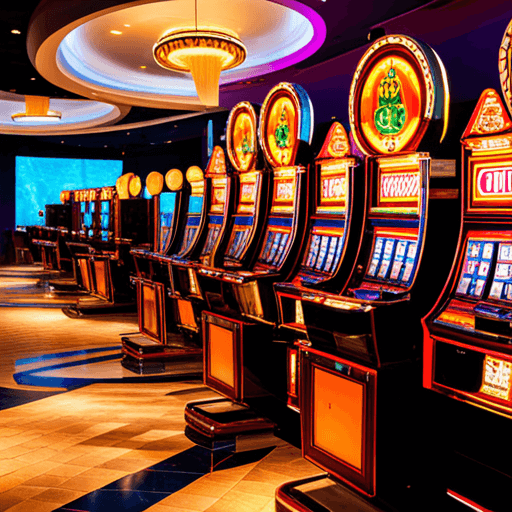
Casino activities have captivated gamblers for centuries, drawing them into a realm of excitement, chance, and wealth. From the blinking lights of slot machines to the intense action of card tables, these games offer a special mixture of entertainment and hazard. However, below the surface of this glitz and glamour lies a intricate interplay of calculations that influences every result and action made within the gambling establishment.
Comprehending this relationship between gaming activities and math merely boosts the playing experience but can also help participants make knowledgeable decisions. Whether you are a recreational punter or a dedicated enthusiast, recognizing the math concepts at play can provide valuable understandings into probability, odds, and tactics, eventually affecting how one tackles these chance games.
Statistical Probability in Betting
In the sphere of casino games, statistical likelihood plays a critical role in assessing results and guiding gambler choices. Each activity has a distinct set of regulations and a specific probability model that affects its dynamics. For example, in activities like the roulette wheel, players must understand the chances of choosing a certain digit or shade. The probability of specific events occurring can be calculated, and this understanding can greatly influence betting strategies. https://8xbetkm.com/
Gambers also need to be informed of the house edge, which is the mathematical benefit that gambling establishments hold over players in the long run. This edge varies across different games. In 21, expert players can use tactics to reduce the casino edge to as low as 1 %, while in activities like slots, the house advantage can be significantly greater. Comprehending the house advantage allows gamblers to make educated decisions about which activities to participate in and how much to wager.
Furthermore, likelihood is fundamental in the concept of danger versus reward in gambling. Every bet carries a specific danger level, and players must assess the potential payout against that risk. Activities like the poker game require gamblers to not only assess the chances of their own showing winning but also to assess the likelihoods of their rivals’ showings. By applying mathematical principles to their strategy, players can boost their odds of success and engage more strategically in the exciting world of gambling activities.
Anticipated Value in Casino Activities
When talking about casino activities, one of the basic ideas rooted in mathematics is the anticipated worth. This numerical metric assists gamblers grasp the potential outcomes of their wagers over time. In basic terms, expected value (EV) calculates the average amount a player can expect to gain or suffer per wager if they were to play the activity repeatedly. Each game has its own EV, affected by the probabilities and the house edge, which indicates the benefit that the gambling establishment holds.
For example, think of a game like roulette. The expected worth can be calculated based on the specific bet made. If a gambler bets on a individual number, the payout is 35 to 1, but the true odds of winning that wager are 1 in 37 (in European the roulette game). This leads in a detrimental anticipated worth, indicating that, on average, players will incur a loss money over a period when playing this type of bet. Understanding this concept allows gamblers to make better informed decisions about which games and bets may be less advantageous.
Moreover, the investigation of anticipated value can lead to better money management. Players who understand the mathematics behind their games are often able to set practical goals. By recognizing their possible deficits and profits, they can adjust their gambling strategies appropriately, which may enhance their overall gambling experience overall. As a consequence, anticipated worth serves as a critical resource for both beginner and experienced players to navigate the often volatile nature of casino activities.
Approaches and Chances: The Arithmetic Behind Winning
In gaming establishments, comprehending the odds is vital for players seeking to maximize their opportunities of winning. Each activity has its own unique set of probabilities that determine successful results, and these figures are often presented in the rules of the game guidelines or payout schedules. For case, in activities like 21, gamblers can boost their chances through strategies such as tracking cards, which is based on math principles to gain an edge over the casino. By educating themselves with the chances, gamblers can make more educated determinations on when to bet and when to give up.
Additionally, the concept of expected value plays a major part in casino strategies. Average outcome calculates the mean outcome of a wager over the long run, allowing players to judge whether a particular bet is valuable taking. For example, slot machines have a set return percentage, which can show the average profit a participant can anticipate on their stakes. By choosing games with better average outcomes, participants can lessen the house advantage, boosting their potential returns in the long run.
Lastly, successful players often employ a combination of chance and math strategy to improve their gaming experience. While chance can’t be controlled, managing a wagering approach based on math insights can lead to more favorable outcomes. By utilizing techniques such as bankroll management and choosing games, participants can apply math to maneuver through the volatile nature of gambling activities, making the most of their efforts and investments at the gaming tables.
